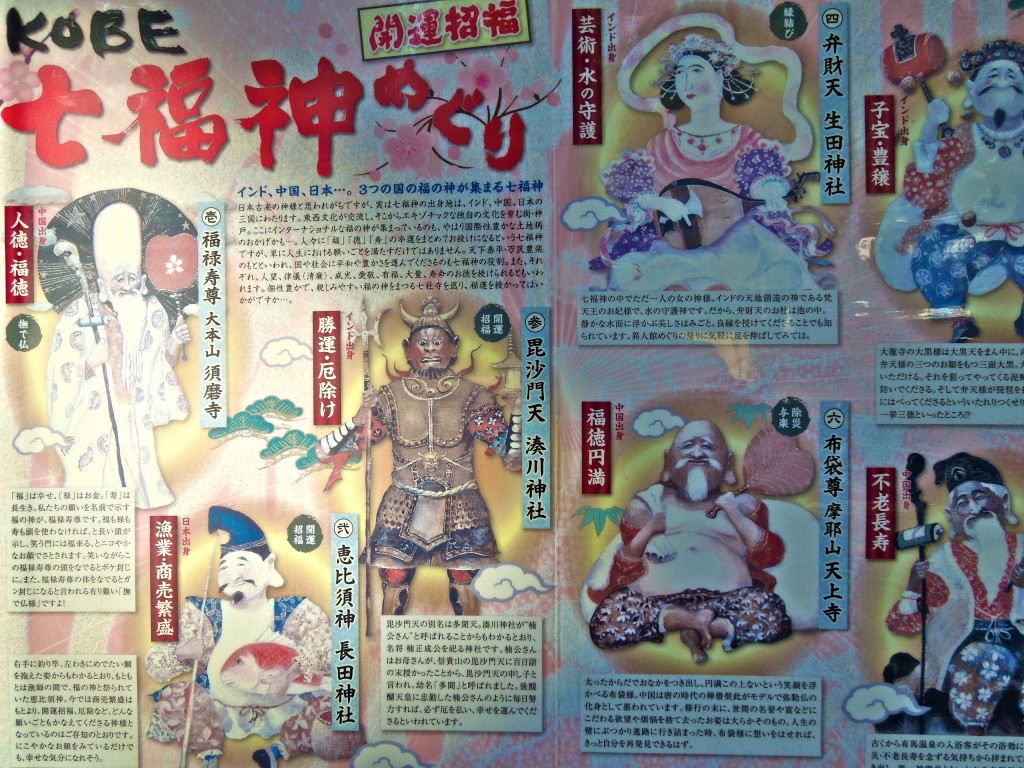
Poster advertising the Kobe Seven Lucky Gods pilgrimage
The Seven Lucky Gods (Shichifukujin) may be the ultimate in Japan’s syncretic landscape. They pop up anywhere and everywhere, whether Shinto shrine or Buddhist temple. Though the Meiji government tried to sever all forms of syncretism, they failed miserably with these jolly folk figures.
A Seven Lucky God pilgrimage is currently being promoted by three Kobe shrines and four temples (see poster above). It’s heartening to see the joint promotion by Shinto and Buddhist institutions, and it’s heartening too that rather than trumpeting a narrowly Japanese view of the figures, the publicity stresses their provenance – India and China for the most part, with just one originating in Japan. The three countries are bound together by Buddhism, but few people realise how much the three countries are bound together by non-Buddhist beliefs too. Here, refreshingly, is an international view of Japanese deities. I can’t help feeling the Shinto priests were led by their Buddhist counterparts in this.

Treasure boat containing the Seven Lucky Gods
So who are the Seven Lucky Gods? In Japan the earliest references go back to the fifteenth century, though it was in the Edo period that they became popular in the form they now have. They’re often pictured all together in a ‘fortune boat’ (takurabune), as if bringing luck and prosperity from overseas.
1) Daikokuten. Origin in India. Deity of wealth and agriculture/land. Carries a magic mallet and fortune sack.
2) Ebisu. Origin in Japan. God of fishing and often pictured with a fish. Said to be the son of Daikokuten.
3) Hotei. Origin in China. God of contentment. Has a big stomach, rubbing which brings good luck.
4) Benzaiten. Origin in India. Goddess of music and muse of arts. Associated with water and the only female.
5) Fukurokuju. Origin in China. God of wisdom and fertility. Elongated head to show intelligence.
6) Jurojin. Origin in China. God of Longevity. White beard to show age and lover of rice wine.
7) Bishamonten. Origin in India. God of treasure. Has armour, a spear and carries a pagoda.
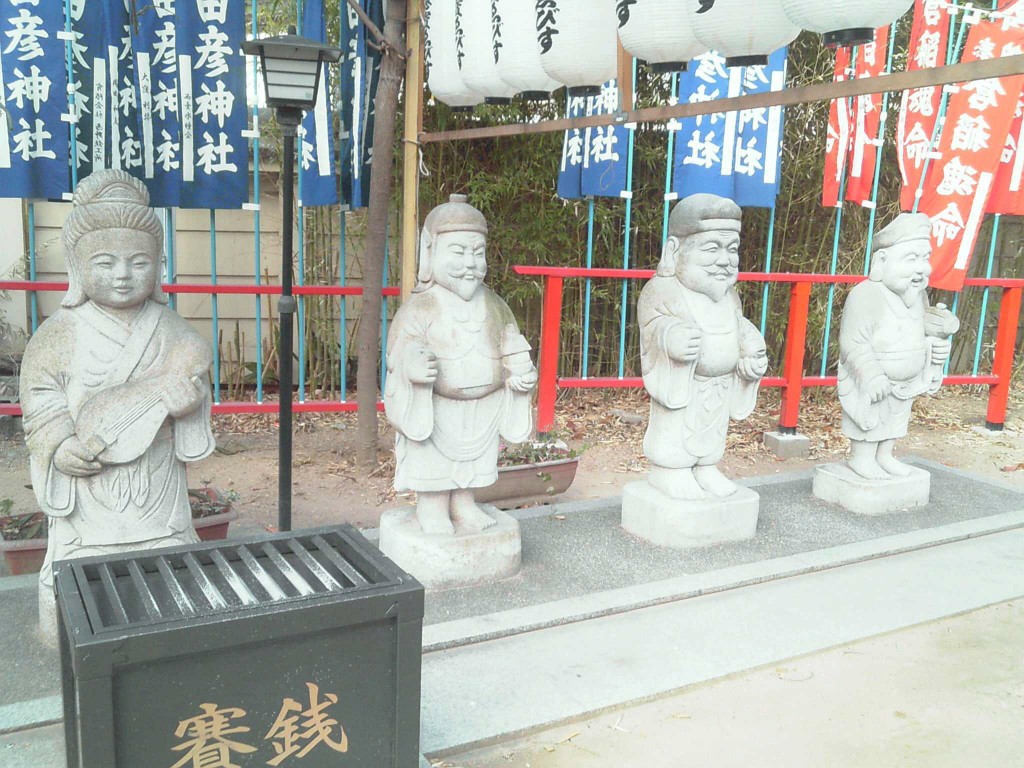
Benzaiten, Bishamonten, Ebisu and Daikoku
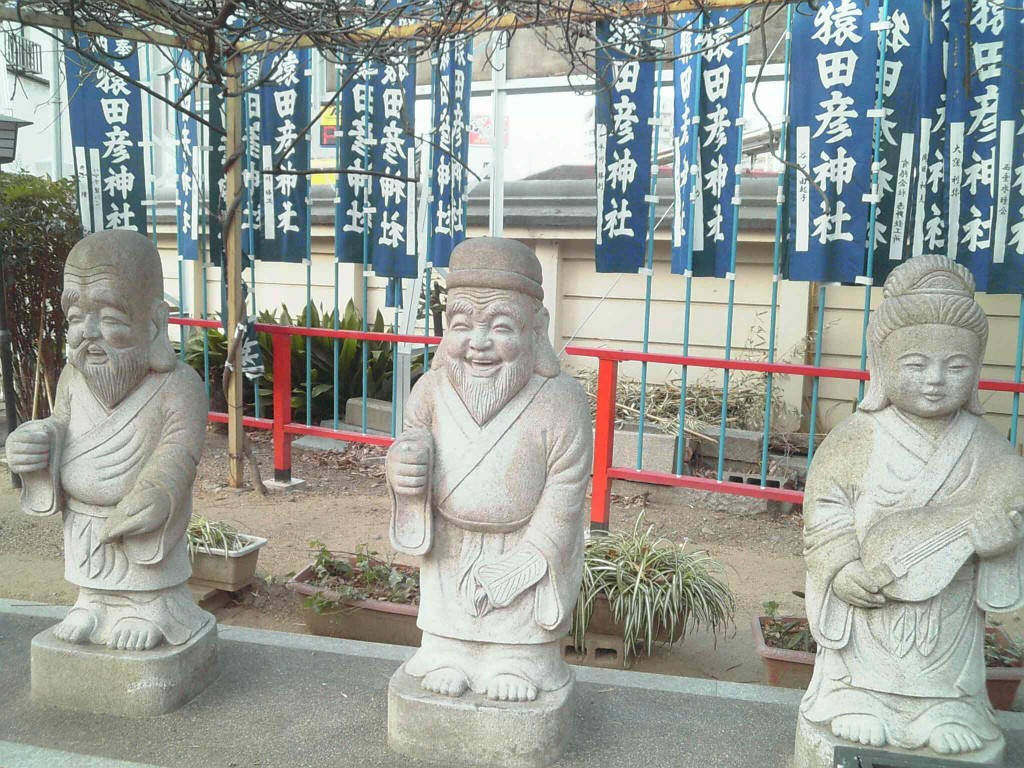
Fukurokuju, Jurojin and Benzaiten
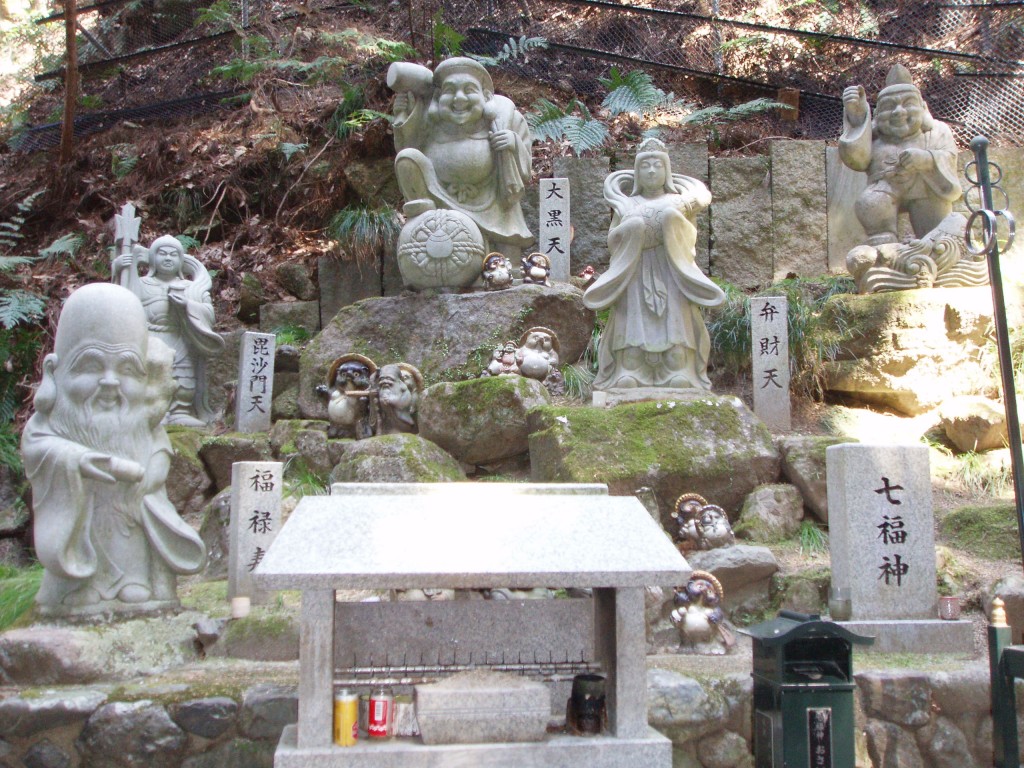
Five of the Seven Lucky Gods – Fukurokuju, Bishamonten, Daikokuten, Benzaiten, Ebisu
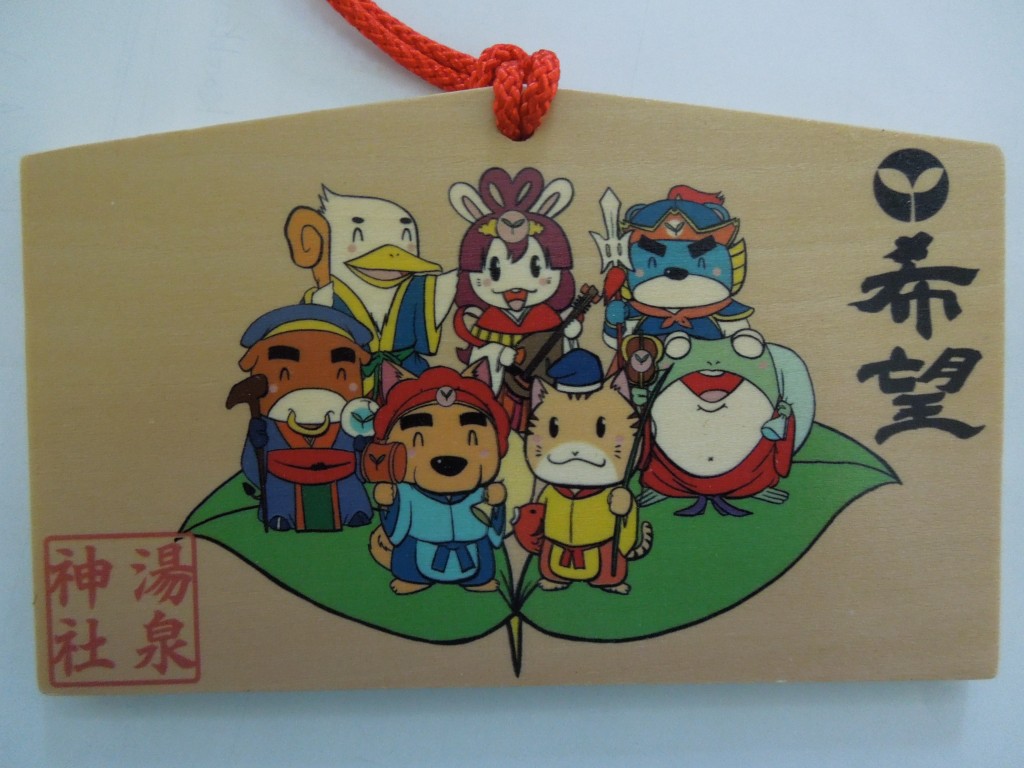
Cartoon ema of the Seven Lucky Gods from Tousen Jinja in Arima onsen near Kobe
******************************************************************
For an excellent overview of the Seven Lucky Gods, see Mark Schumacher’s onmark site here. Wikipedia has pages for the individual deities, which can be accessed from here. For details of the Kobe Seven Lucky Gods pilgrimage, see http://www.ryuusenkaku.jp/navi/shichi2.html

Just FYI, the Onmark link is malformed… it has an extra “http://” at the end…